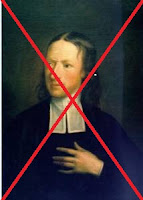
Leaders in the church are subordinate to the mission of the church. That's why it's sad that although our Discipline begins with wonderful sections on UM theology, history, and doctrine, most of our energy in the last decades has been expended in tinkering with the sections on structure and process. A bishop could now declare (as at least one has) that the Resurrection is hooey and suffer less censure than if he had questioned the wisdom of forming the membership of every committee by quotas for gender, ethnic, geographical, and clerical/lay representation.
.
And when the Discipline discusses clergy, it expends most of its effort who can and can't be clergy and a byzantine process for approving or removing clergy that shows little interest in defining what clergy are for. What are reasonable expectations for the performance of clergy? What do effective clergy produce? We have long lists describing the qualities of clergy with little clarity on what sort of fruitfulness we ought to expect at this time and place in our movement. How very "un-Wesleyan."
___
William H. Willimon, Bishop: The Art of Questioning Authority by an Authority in Question (Nashville: Abingdon Press, 2012).
3 comments:
So what were Wesley's standards for fruitfulness, exactly? I'm all for encouraging excellent but I can't say I know how Wesley described this.
*encouraging excellence
Mack,
In the book, Willimon details how Wesley went about measuring such fruitfulness, but the long and short of it is he measured fruitfulness by the making of disciples.
Post a Comment